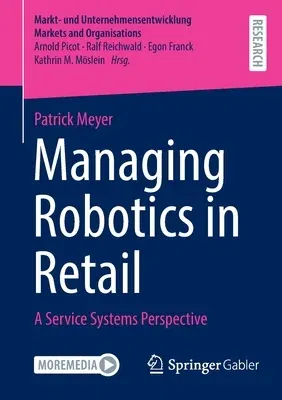Patrick Meyer
(Author)Managing Robotics in Retail: A Service Systems Perspective (2022)Paperback - 2022, 17 May 2022

Qty
1
Turbo
Ships in 2 - 3 days
In Stock
Free Delivery
Cash on Delivery
15 Days
Free Returns
Secure Checkout

Part of Series
Markt- Und Unternehmensentwicklung Markets and Organisations
Print Length
313 pages
Language
English
Publisher
Springer Gabler
Date Published
17 May 2022
ISBN-10
3658374993
ISBN-13
9783658374990
Description
Product Details
Author:
Book Edition:
2022
Book Format:
Paperback
Country of Origin:
NL
Date Published:
17 May 2022
Dimensions:
21.01 x
14.81 x
1.91 cm
ISBN-10:
3658374993
ISBN-13:
9783658374990
Language:
English
Location:
Wiesbaden
Pages:
313
Publisher:
Weight:
439.98 gm